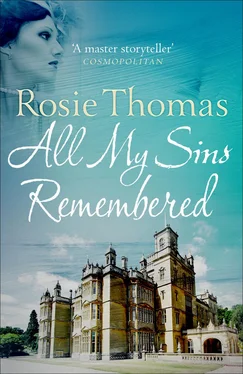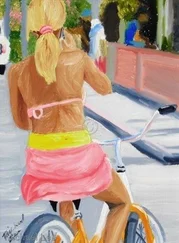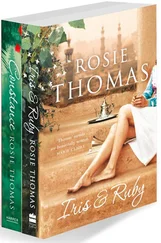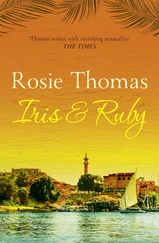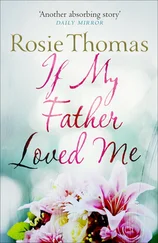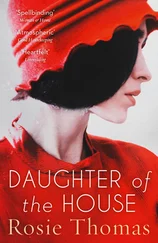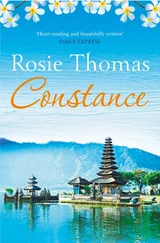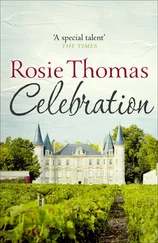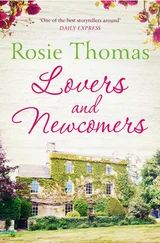Nathaniel had seen her, but he made no effort to navigate his way through the party to her side. Eleanor concentrated very hard on the conversation immediately around her, and wondered why not.
She need not have worried. Nathaniel had already discovered from Lady Haugh that they were to be seated together at the luncheon table. He was waiting for his chance.
There was no formal taking-in at Fernhaugh, but when Lady Haugh leant elegantly on Norton Ferrier’s arm and drifted towards the dining room, Nathaniel materialized at Eleanor’s side. Philip Haugh murmured the briefest introduction. Nathaniel took her hand and bowed over it, as though they had never seen each other before. On his arm Eleanor felt small and light, as if the toes of her shoes barely touched the floor.
‘Now then,’ he said as they sat down, ‘we can talk. Tell me exactly who you are, and what you are doing here.’
Eleanor told him, and he listened intently. For the first time, she talked about herself without referring to Blanche. She laid out the bare facts of her life as if it had been hers alone, and just as Blanche had done she discovered that it was agreeable to be reckoned with for herself, instead of as one half of a whole. It was more agreeable still just to sit with this unusual, suddenly solemn man looking into her eyes. The food came and went. The partners on their opposite sides were brutally neglected. Mary Ferrier caught Lady Haugh’s eye, and they exchanged a small, surprised moue .
‘I have a twin sister,’ Eleanor said at length, touched by a finger of guilt. ‘She was married earlier this year.’
‘You miss her,’ Nathaniel remarked, as if stating what was obvious.
‘Yes, I do.’
‘Are you very alike?’
‘We are identical.’
Nathaniel’s thick eyebrows drew together. When he opened his mouth Eleanor saw the movement of his tongue and the elastic contraction of his lips. She had never been so sharply aware of anyone’s physical nearness, of the few inches of air and layers of cloth between them. She should have glanced away, but she let his eyes hold hers.
‘I don’t think so,’ Nathaniel said softly. ‘I believe you are unique.’
Eleanor did look away, then. She turned deliberately to her neighbour on the other side, and began a conversation about architecture. She did not turn back until she was sure of herself, and when she did speak to Nathaniel again it was in an attempt to take control.
‘You haven’t told me who or what you are. It’s your turn to confess now.’ To her disgust Eleanor knew that she sounded arch rather than commanding. Nathaniel’s mouth twitched in the depths of his beard.
‘I am a teacher. I live in Oxford.’
That was all. Lady Haugh was standing up. Eleanor rose and followed her. When they sat down in the drawing room with their coffee cups, Eleanor found herself on a sofa between Mary and her hostess.
‘What did you think of our friend Mr Hirsh?’ Frances Haugh asked her, ready to be amused.
‘I liked him,’ Eleanor said. She hadn’t learnt the Souls’ way of pretending to feel less, or more, or something different. ‘Who is he?’
‘He’s a friend of Philip’s. He is very clever; last year he was elected a Fellow of All Souls. He is a don, a linguist, I believe. Eccentric in the way that people of that sort often are. And he is Jewish, of course.’
Eleanor had met plenty of Jews during her two Seasons. There were dozens of them in the new aristocracy. Many of them were rich, and most of them were good company. They were invited everywhere, and hostesses were pleased to welcome them whilst congratulating themselves at the same time on their own enlightened attitudes. Now that she thought about it, Eleanor realized that of course Nathaniel Hirsh was a Jew. And at the same time she knew that he was different from the bankers and financiers and manufacturers she had met in the London ballrooms. They were indistinguishable except by name from the old families.
Nathaniel was distinguishable. Nathaniel was distinguishable from everyone else she had met in her life. She didn’t want to label him, Jewish or not, suitable or otherwise. He was, she understood, above that.
When he came to claim her from between Mary and Frances, Eleanor went with him. Mary watched them go out into the garden, and then shrugged her pretty shoulders.
‘Whatever will Aunt Constance think?’ she wondered, and laughed faintly.
Eleanor and Nathaniel walked the shady paths together. They could never remember afterwards what they talked about, only that there was a great deal to say. The sun moved and dipped behind the garden’s fringe of elms.
When it was time for Nathaniel to leave, he took her hand. He lifted it to his mouth and held it there. The beard was soft on her skin, black against the whiteness.
‘May I call again tomorrow?’
‘I go back to Town tomorrow afternoon, with my cousin.’
‘I will call in the morning.’ Nathaniel said.
Eleanor smiled at him, and he saw all the light of the day in her face.
That evening, Eleanor sat down at the writing table in her bedroom and began a letter to Blanche. She had been intending to tell her sister everything; about how Nathaniel Hirsh had appeared in the garden at Fernhaugh and had immediately occupied the middle of her private landscape. He had made her see how bland the scenery was before he came. But then she thought of Blanche and John Leominster together, and of the tentative, sometimes puzzled way they seemed to defer to one another. She had never seen John Leominster look the way Nathaniel had looked at her today, and she didn’t believe Blanche had ever known the mixture of happy anticipation and certainty and dazzlement that she felt tonight.
Eleanor sighed, resting her chin in her hand and thinking of the miraculous day that had produced Nathaniel. Then she put down her pen. She never completed the letter.
Nathaniel went slowly back to Oxford. He was considering the other women he knew, the dark, exuberant daughters of his mother’s friends and the few University ladies and the wives of his colleagues. None of them had Eleanor Holborough’s air of opposites combined, of originality within the conventional, of passion contained by propriety. None of them even seemed to Nathaniel to be as perfectly beautiful as Eleanor.
He had accepted the invitation to Fernhaugh intending to listen and watch, and he came back having fallen in love.
The next morning, when he was leaving her again, Nathaniel kissed Eleanor on the mouth. She turned her face up to his, and kissed him back. There was no reason not to. They were honest with each other. Afterwards, when he had gone, Mary and Frances looked speculatively at her. They were too discreet to ask direct questions, and Eleanor had enough self-possession to give nothing away. But her senses were sharpened by the feelings Nathaniel had stirred in her. She looked around Fernhaugh, and suddenly understood what she saw.
As they were leaving the old house and Norton Ferrier bent his sleek head to kiss Frances Haugh goodbye, Eleanor felt as if her eyes had been opened. There was plenty for her to think about on the journey back to London.
‘What will you tell my mother and Aunt Constance about Mr Hirsh?’ Mary asked slyly.
‘The truth,’ Eleanor was composed. ‘When the right time comes.’
They wrote to each other every day of the next week, letters of deepening affection. Eleanor discovered that Nathaniel was steeped in Goethe and Dante as well as Andrew Marvell, and her own responses seemed stilted and childish in answer to the fluently romantic pages he poured out to her. But Nathaniel answered that he loved her letters, and would keep them for ever. He also warned her, as gently as he could, that there might never come a right time to announce to their families that they intended to marry.
Читать дальше
